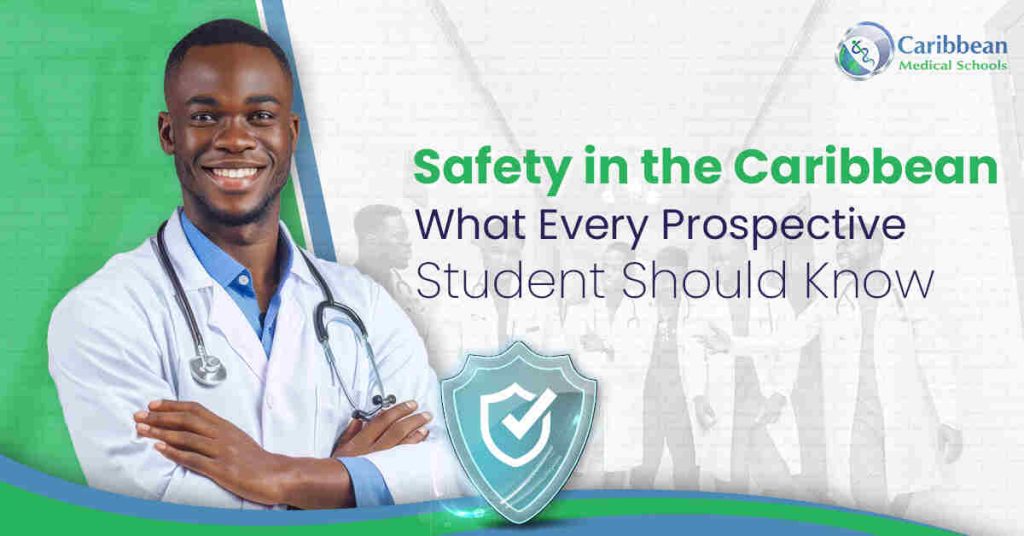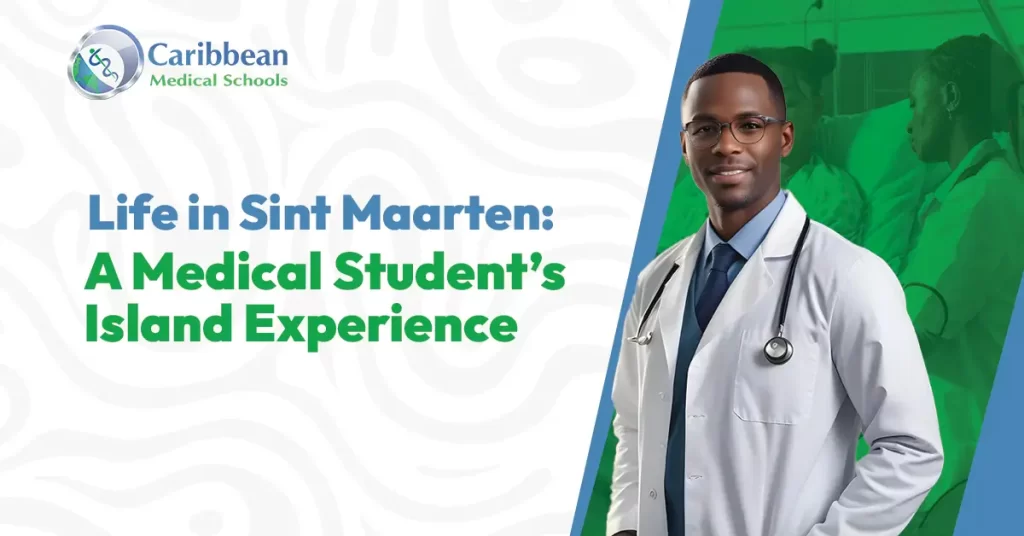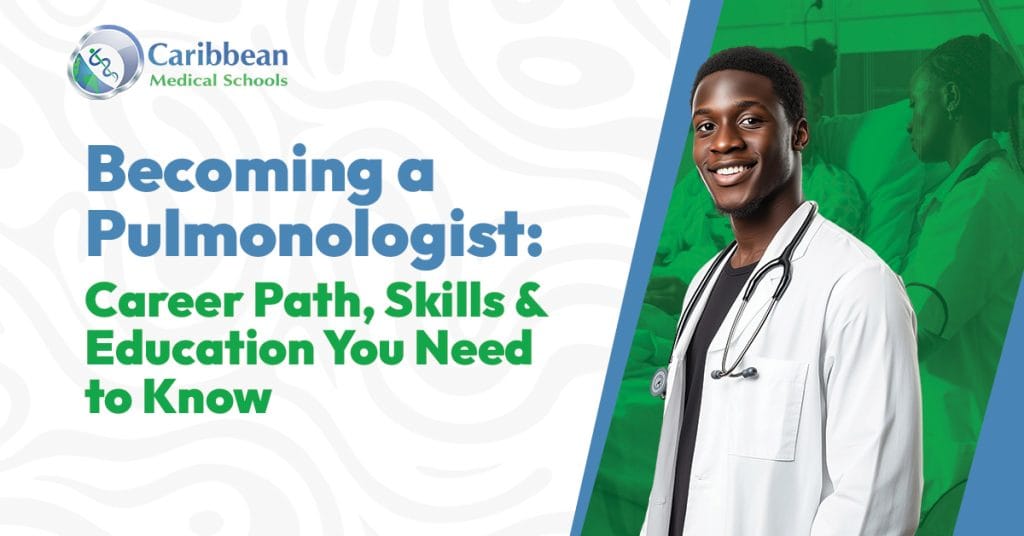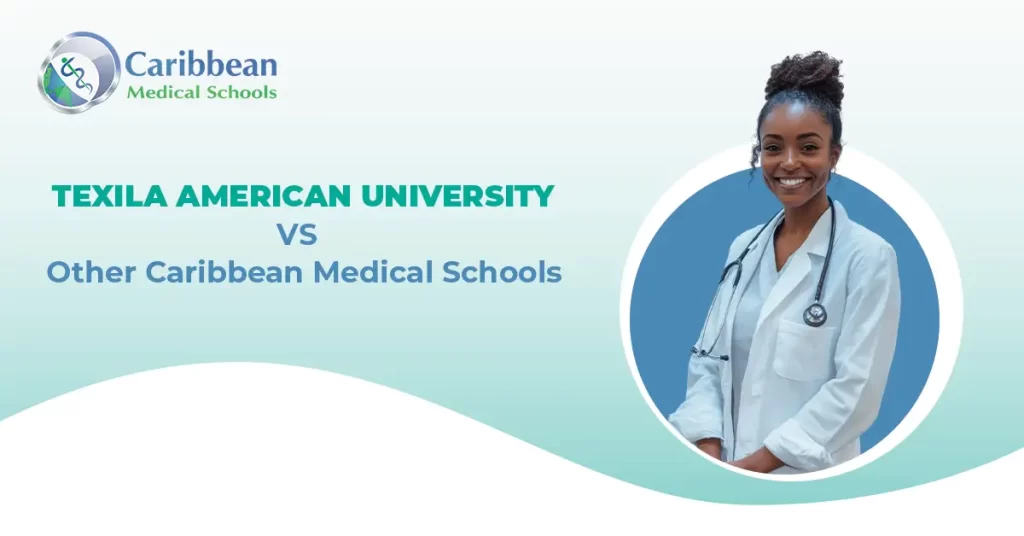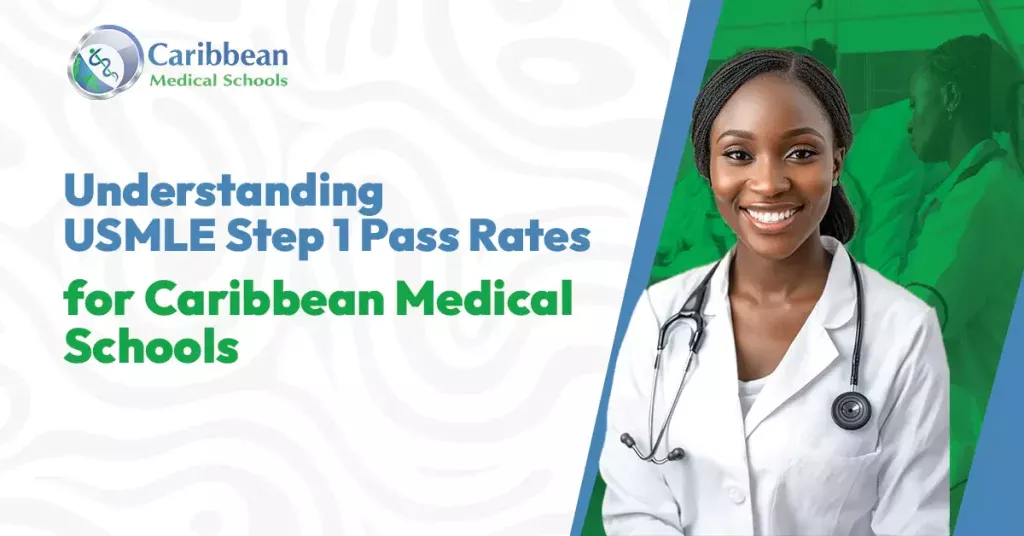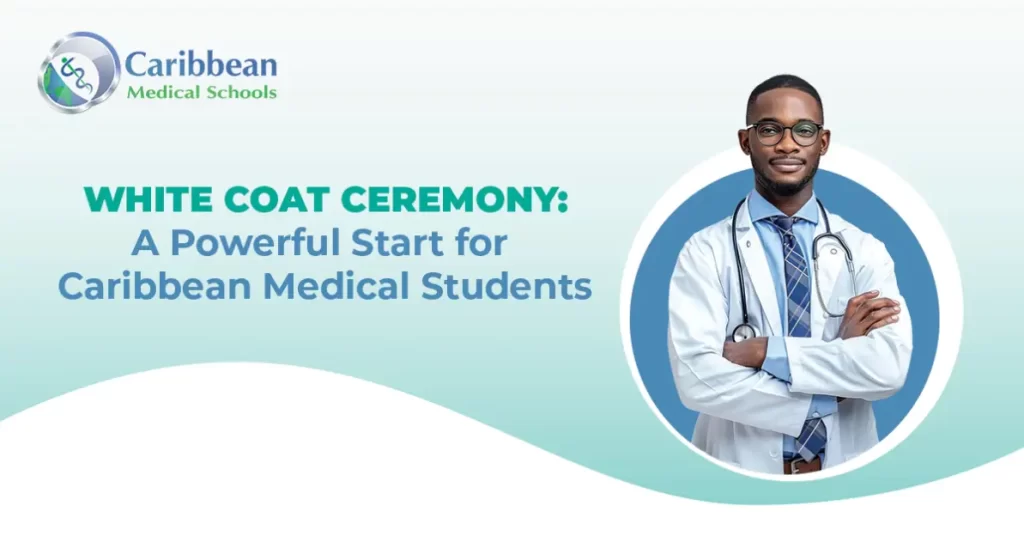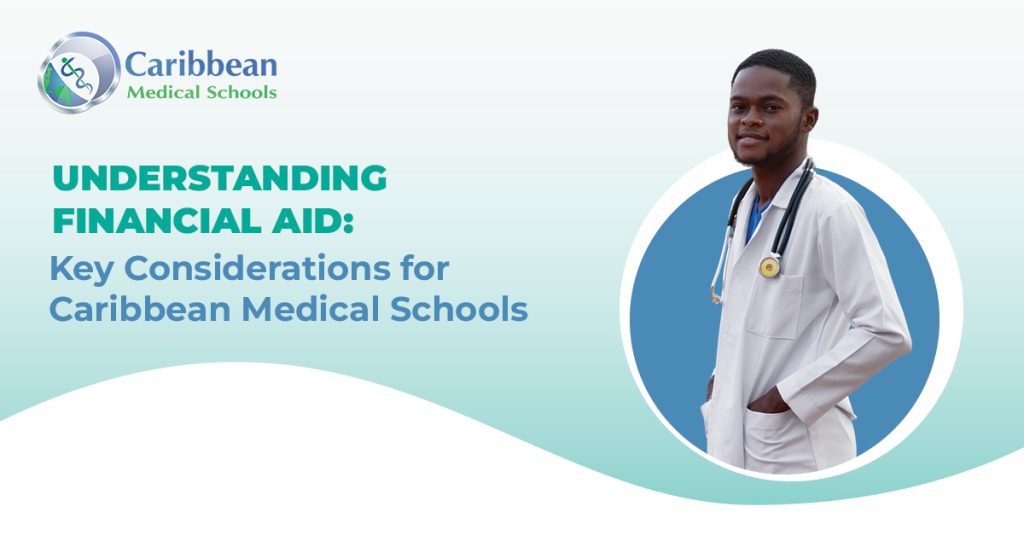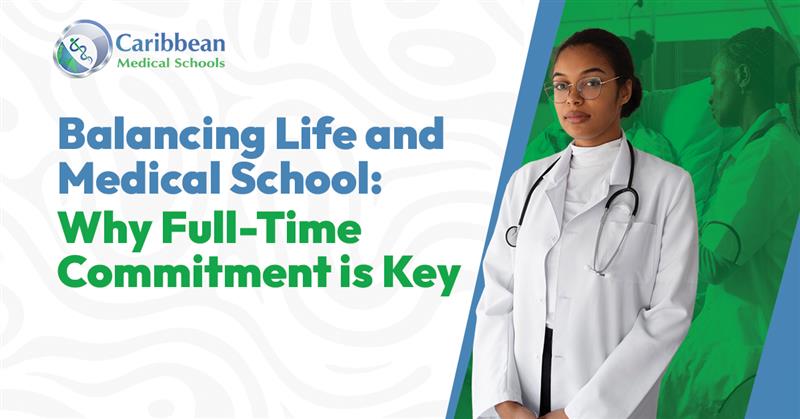Blog Summary
The Caribbean is a popular destination for international students, especially those pursuing medical studies. While the region is known for its beautiful landscapes and welcoming culture, prospective students should be aware of certain safety considerations. This blog will explore the general safety situation in the Caribbean, offer practical tips for staying secure, and provide answers to common student concerns.
Table of Contents
Introduction
Choosing to study abroad is an exciting adventure, but safety is a top concern for many prospective students and their families. Caribbean known for its vibrant culture, warm climate, and world-renowned medical schools, attracts thousands of students each year. While generally safe, students should be aware of risks and take proper measures to ensure a smooth experience. This blog will deliver an in-depth guide to safety in the Caribbean, covering everything from general crime rates and health precautions to natural disaster preparedness. Whether you’re considering enrolling in a Caribbean medical schools or pursuing another academic discipline, this guide will equip you with the knowledge to stay safe and make the most of your time in this stunning region.
Safety in the Caribbean: Understanding the Region
The Caribbean is made up of a diverse group of islands, each with its unique characteristics and safety profile. Some countries like Barbados, the Bahamas, and Saint Kitts and Nevis are considered safer, while others may experience higher crime rates, particularly in certain urban areas. It’s essential to research the specific island where you’ll be studying and become familiar with its local customs, laws, and safety measures.
Despite some of the region’s challenges, most students find the top Caribbean medical schools to be a relatively safe place to live and study. Common sense, a good understanding of your surroundings, and taking precautions can go a long way in ensuring your safety.
Crime in the Caribbean
Crime in the Caribbean, like anywhere else in the world, varies by location. Petty theft and burglary are the most common types of crime reported, particularly in tourist-heavy areas. Here are some general crime statistics:
- Petty theft: The most common threat for students, especially in high-traffic areas like public transportation and tourist spots.
- Pickpocketing: Students should remain vigilant in crowded places like markets or festivals.
- Burglaries: Students living off-campus should invest in secure accommodations, ideally with 24-hour security or gated access.
Best Caribbean medical schools offer secure campus housing, which significantly reduces the risk of theft and other crimes. If you’re living off-campus, choosing a safe neighbourhood and being aware of local crime hotspots can help protect you from harm.
Safety Tips to Avoid Crime:
- Always lock your doors and windows.
- Don’t carry large amounts of cash or display expensive items like jewellery.
- Use trusted transportation services and avoid unregulated taxis.
Health and Medical Safety
Health safety is another important consideration for Caribbean medical schools students. The region has made significant strides in public health, but students should still be aware of common health risks and the precautions necessary to avoid them.
Common Health Concerns:
- Mosquito-borne illnesses: Diseases like Zika, dengue, and chikungunya are spread by mosquitoes in the Caribbean. Use mosquito repellent, wear protective clothing, and sleep under mosquito nets when necessary.
- Food and water safety: Stick to bottled water in areas where tap water is not potable. Make sure that food is cooked and stored correctly to avoid foodborne illnesses.
- Vaccinations: Check with your healthcare provider to make sure you’re up to date on all necessary vaccines before arriving in the Caribbean. Hepatitis A, B, and tetanus are commonly recommended for travellers.
Most Caribbean islands have modern medical facilities, especially near large cities and university campuses. However, students may want to consider purchasing international health insurance that includes coverage for evacuation in case of serious illness or injury.
Natural Disasters
The Caribbean is prone to natural disasters, particularly hurricanes and earthquakes. The hurricane season starts from June to November, with August and September being the most active months.
Preparing for Natural Disasters:
- Stay informed by following local weather reports and signing up for alerts.
- Know your school’s emergency procedures and evacuation routes.
- Keep emergency essentials like water, non-perishable food, and medications.
Most Caribbean schools and student housing facilities are well-prepared for natural disasters and offer guidance on what to do in case of an emergency.
Transportation Safety
Transportation safety is crucial for students living off-campus or travelling between islands. Public transportation systems in the Caribbean vary greatly in quality and safety, so it’s important to do your research before relying on them.
Tips for Transportation Safety:
- Use official taxis or ride-sharing apps where available.
- Avoid travelling alone, especially at night.
- When renting a car, ensure that it’s from a reputable company and that you understand local driving laws.
- Wear seatbelts and drive cautiously, as road conditions may differ significantly from those you’re used to.
Cultural Safety
Acknowledging and following local cultural norms is key to staying safe and making the most of your time in the Caribbean. The region is known for its warm hospitality, but it’s important to be aware of cultural differences that may affect how you’re perceived and treated.
Cultural Safety Tips:
- Be mindful of local etiquette regarding greetings, personal space, and conversation topics.
- Engage respectfully with locals and avoid sensitive political discussions.
By taking the time to learn about the culture of your host country, you’ll not only avoid misunderstandings but also enrich your experience.
Conclusion
Studying in the Caribbean offers a unique blend of academic opportunities and cultural experiences, but like any international destination, it requires awareness and preparation to ensure safety. By staying informed, following local guidelines, and taking common sense precautions, you can enjoy a secure and enriching time as a student in this beautiful region.
FAQs
1. Is it safe to study in the Caribbean?
Yes, most Caribbean islands are safe for students, especially in and around university campuses. However, students should exercise caution, particularly in unfamiliar areas or tourist-heavy spots.
2. What are the most common crimes in the Caribbean?
Petty theft, pickpocketing, and burglaries are the most common crimes in the region. It’s important to stay vigilant and follow safety precautions to avoid becoming a victim.
3. How can I stay safe from natural disasters in the Caribbean?
Prepare yourself for hurricanes and other natural disasters by staying informed, following university protocols, and having an emergency kit ready.
4. What health precautions should I take before studying in the Caribbean?
Make sure you’re up to date on recommended vaccinations, use mosquito repellent to avoid mosquito-borne illnesses, and stick to bottled water where tap water may not be safe.
5. Is public transportation safe in the Caribbean?
Transportation safety varies by island. Use trusted services like official taxis or ride-sharing apps and avoid travelling alone at night. Always research local transportation options to ensure they are safe.

